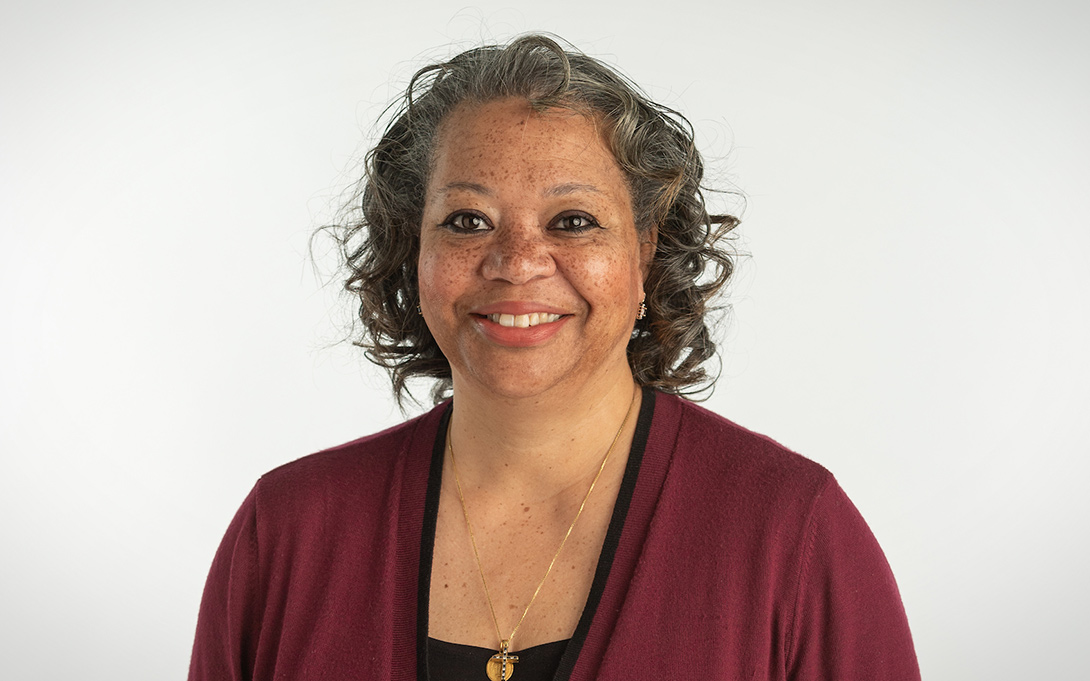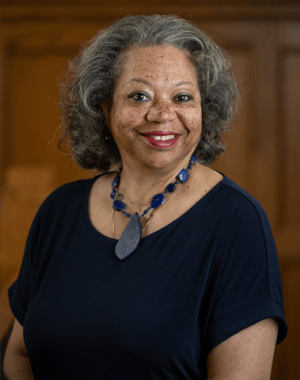
As two rival generals continue their deadly feud for control of the Sudanese capital Khartoum, fears are rising of of another major regional conflagration. Ambassador Susan D. Page, Ford School Professor of Practice in International Diplomacy, has been giving her analysis. She has a unique perspective, having spent years in the country as a diplomat, including helping to negotiate the end of the civil war in 2005 and then serving as the first U.S. ambassador to South Sudan.
She recently told NPR that starting peace negotiations will be difficult. "If you take Sudan, and you look at other large countries throughout the world, not just in Africa, they are almost always very difficult to govern. When people are very different from one another — farmers, herders, nomads — it's always going to be quite difficult to rule. I think we have a notion that powerful countries can sort of wave a magic wand and get people to stop doing what they're doing. That is what diplomacy is about. But it's very difficult once the big guns literally have come out."
She made that point as well in an interview with NewsNation. “Wars don’t usually make for easy peace,” she said. “That’s the terrifying part. Obviously, the best thing diplomatically would be for a real truce to hold, and for long enough to make some real decisions on the ground by the people who really need to be part and parcel of all of the conversations going forward,”
Early in the conflict, when negotiators were working on brief cease-fires to mark the end of Ramadan, and to allow foreign citizens to evacuate, Page told CBC, "It's just horrifying to see what is happening. All of the promises of the revolution, led by so many women and citizens, ordinary people, just wanting a change. Then to have the military take over and move to fighting now is just awful."
Later on MSNBC, she praised the evacuations, yet noted that the Sudanese people themselves may feel abandoned. "On the one hand, it may make it more difficult for the generals to reach a solution because there won't be as many eyes on the ground watching them; but everyone has to continue to try to at least get the situation calm enough so that people can sit down," she said.
The generals fighting for control have very different capabilities. The Sudanese army, controlled by military ruler General Abdel Fattah al-Burhan, has airpower and training, while the Rapid Support Forces (RSF) of Mohamed Hamdan Dagalo, known as Hemedti, has more pure manpower, as well as support from the Russian para-miltary Wagner Group, she told CNN. "It's unclear who has the upper hand."
"It's one thing to declare a ceasefire, but another to actually abide by it," she told Al Araby TV.
On Al Jazeera, she commented on the earlier evacuations. "From what I understand, it was quite dangerous, given that we weren't sure who controlled the airport in Khartoum. No matter how many times evacuations occur, they are always situation-by-situation, and this one was difficult."
She also has appeared on other broadcasters across the Middle East, including A Shaarq and Al Hurra.
Why is Sudan so prone to civil war?, NPR, May 10, 2023
How U.S. Efforts to Guide Sudan to Democracy Ended in War, The New York Times, May 3, 2023
Generals not likely to back down in Sudan: former ambassador, NewsNation, May 1, 2023
Sudan update, Al Araby, April 26, 2023 (in Arabic)
First US Ambassador to South Sudan on Evacuations: ‘Went off without a hitch’, MSNBC, April 25, 2023
Sudan update, Al Araby, April 23, 2023 (in Arabic)
WH defends decision not to evacuate U.S. citizens in Sudan, CNN, April 22, 2013
Foreign nationals evacuated from Sudan, Al Jazeera, April 22, 2023
Sudan's RSF paramilitary group says it agrees to 72-hour ceasefire, CBC, April 21, 2023
